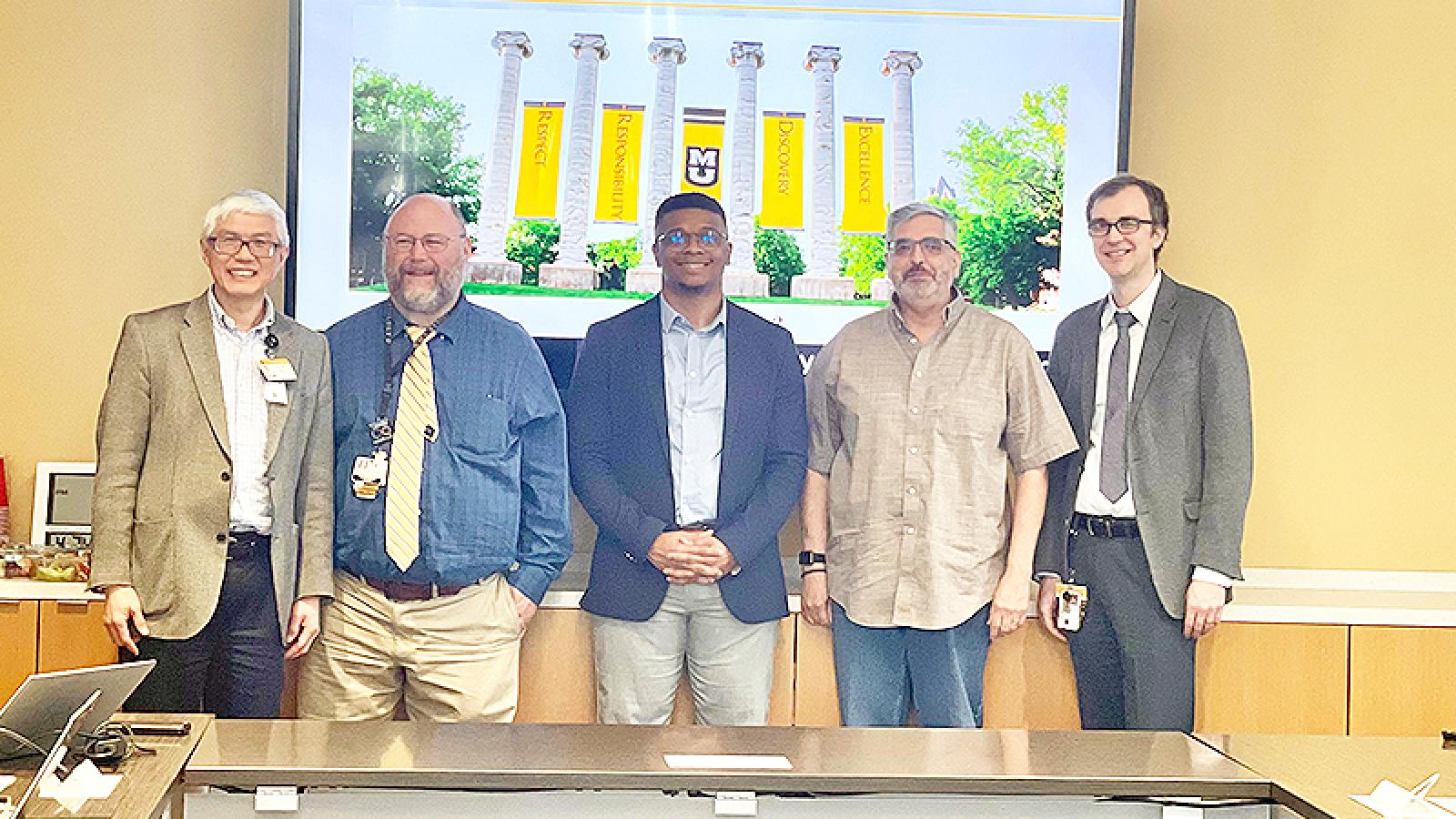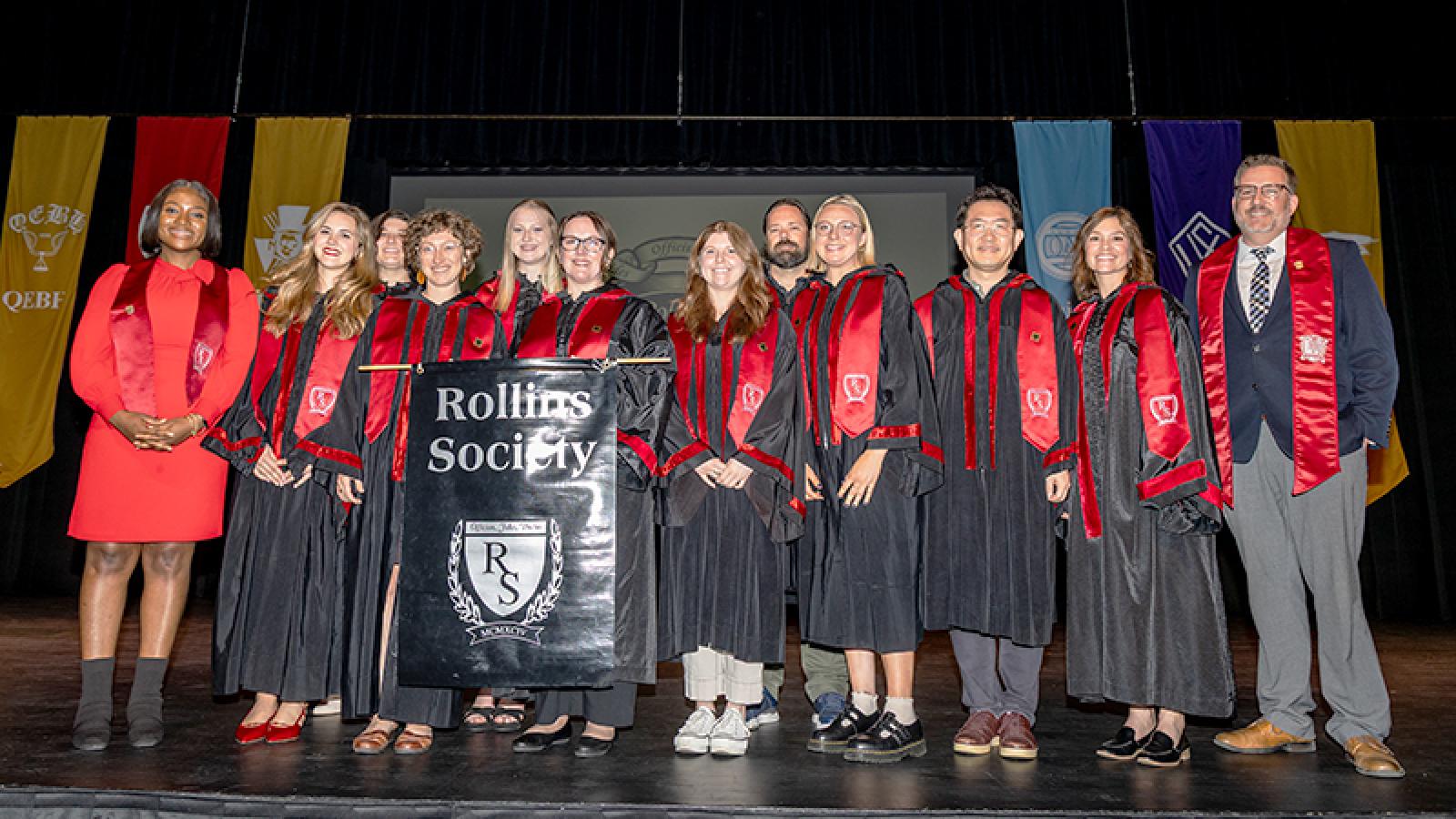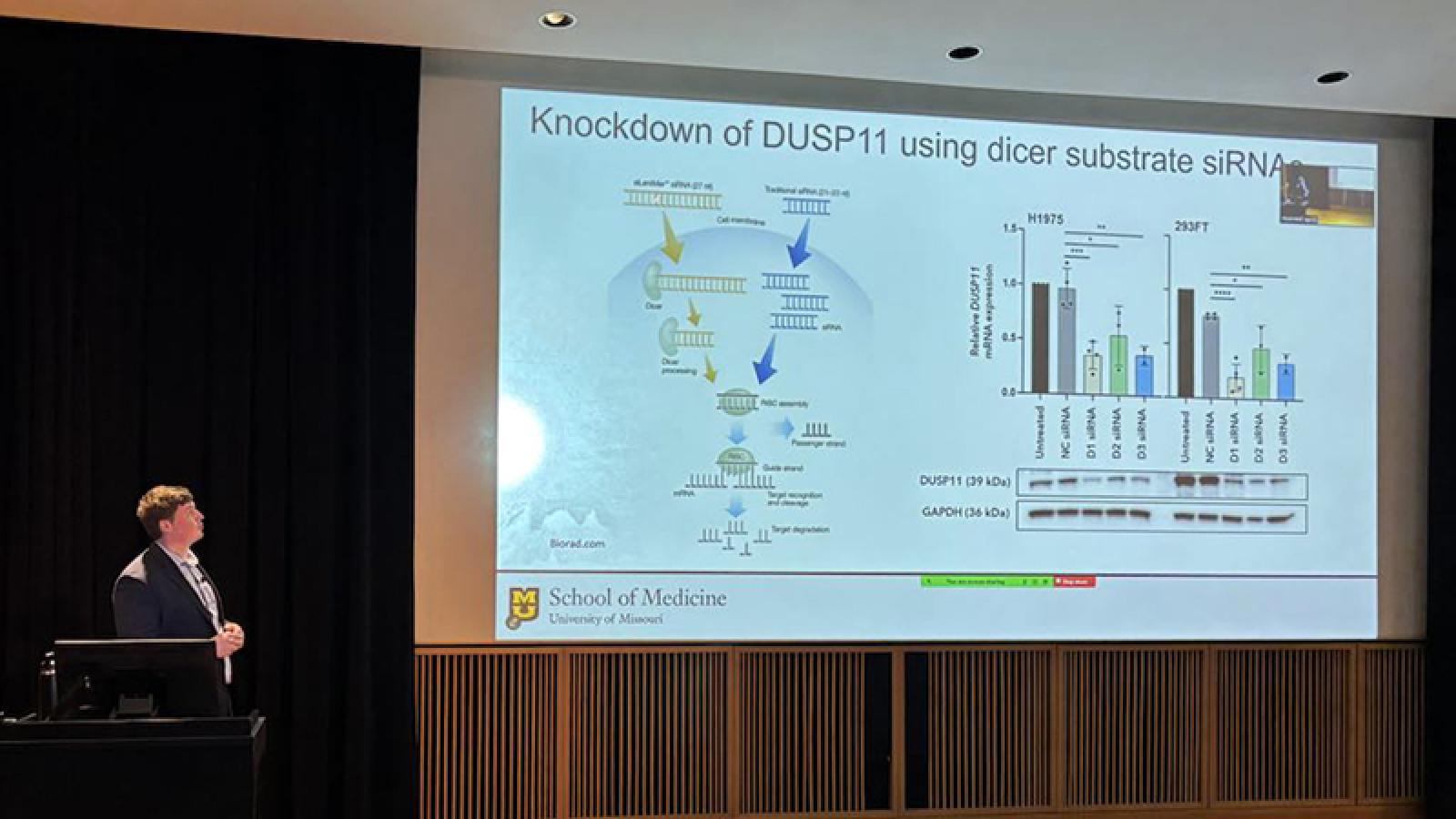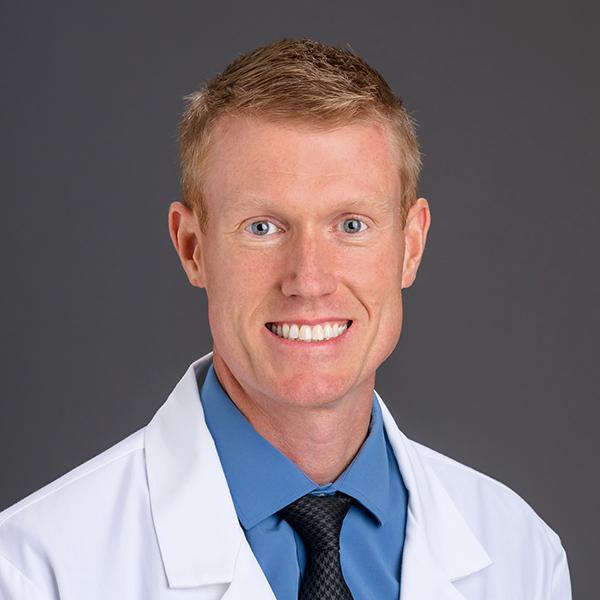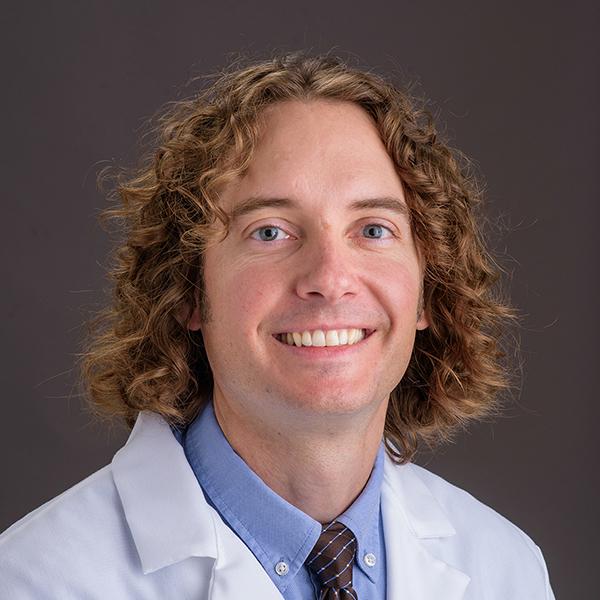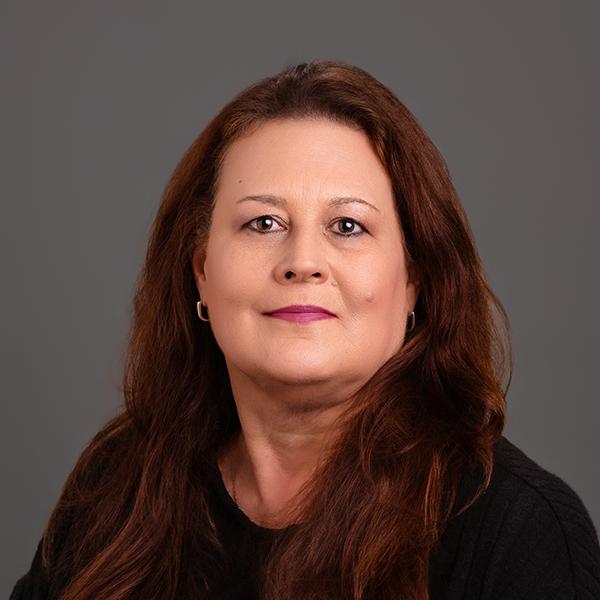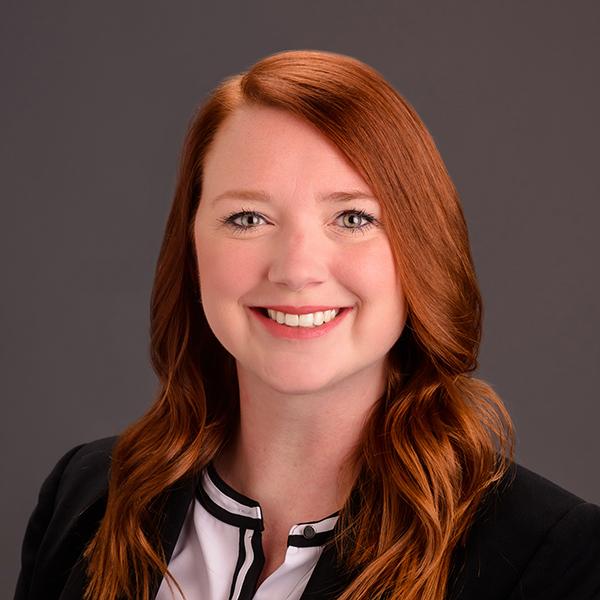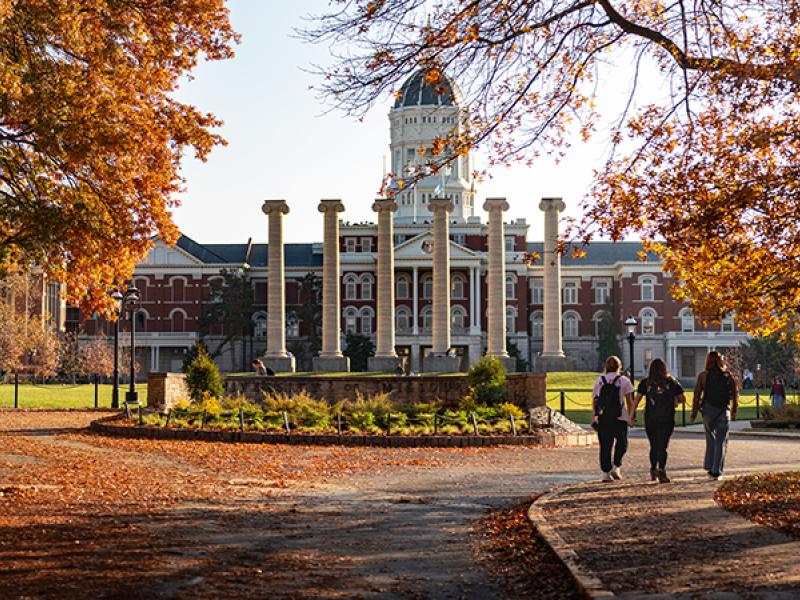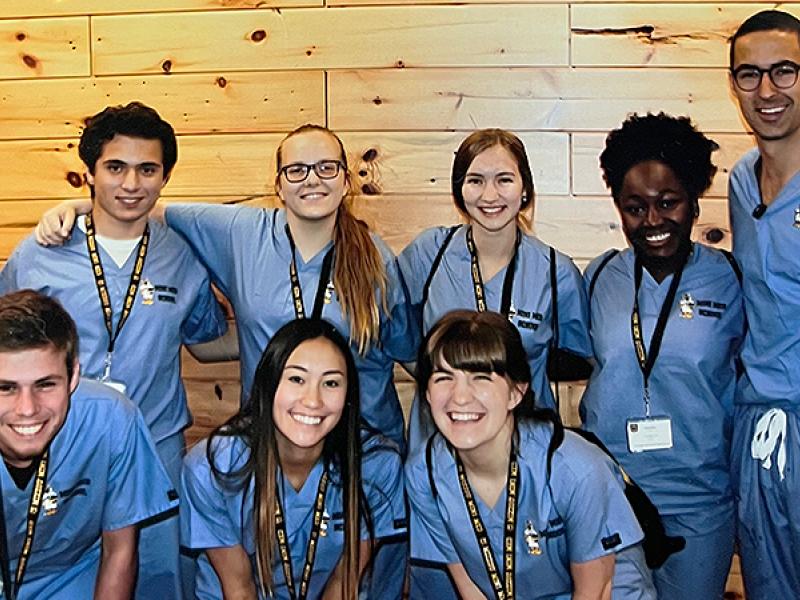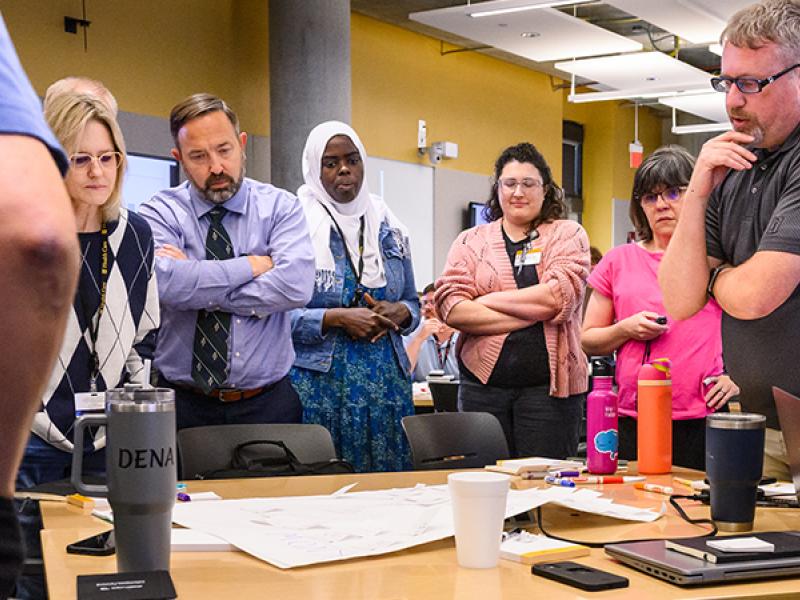The Tom and Anne Smith MD-PhD Program allows students to receive training in a comprehensive program to prepare dual-degree physician-scientists for a career in academic medicine. MD-PhD students pursue a seven- to eight-year course of study that combines the traditional four years of medical school with the three to four years typically required to earn a doctorate in a scientific discipline.
Physician-scientists who complete the MD-PhD program are uniquely prepared to lead independent research programs and train others in translational bench-to-bedside research. They are also able to provide exceptional patient care to assimilate the latest scientific knowledge to the practice of medicine.
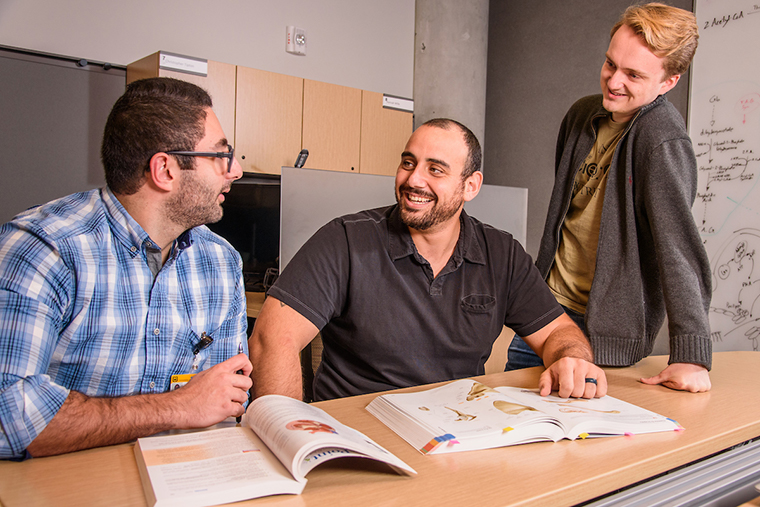
Plan of Study
The MD-PhD program allows a flexible approach to training as a medical scientist. The typical course of study is as follows:
- Years 1-2: School of Medicine patient-based learning curriculum
- Years 3-5: Doctoral degree course work
- Years 6-8: Medical school clerkships and doctoral degree dissertation
Although this is the recommended track for MD-PhD students, scheduling is flexible and based on students' needs.
Degrees
Degree programs are offered in a wide range of scientific disciplines, including:
Find a full list of degree programs.
Scholarships
The School of Medicine offers two full scholarships for incoming MD-PhD students. Each scholarship includes full tuition for four years of medical school as well as a stipend to help with living expenses for each year of study. Funded labs provide full graduate support during the PhD years of study.
Program Elements
Collaboration in all stages of the MD-PhD program is encouraged, and students actively support their peers to become better students, physicians and researchers.
The key elements of the MD-PhD program include:
- Lab rotations (to choose a PhD supervisor)
- Summer research fellowship (after M1 year)
- Journal clubs
- MD-PhD program grand rounds
- Active participation in the research education program across the School of Medicine
- Monthly meeting with MD-PhD executive committee
Mentoring
Mentoring and advising is provided by co-mentors for both the scientific and clinical components of the program. The MD-PhD executive committee is an exceptional resource for students. It includes members with diverse areas of expertise who are dedicated to training a new generation of physician-scientists. Many committee members are physician-scientists themselves, and they all share a passion for teaching, challenging and inspiring students.


